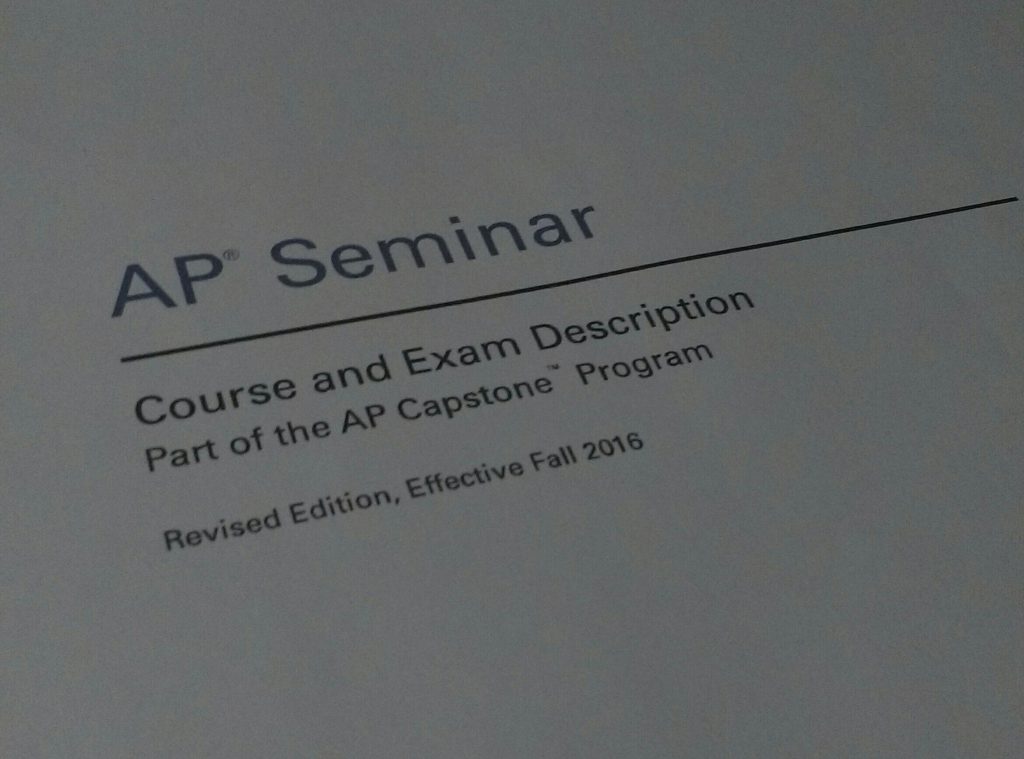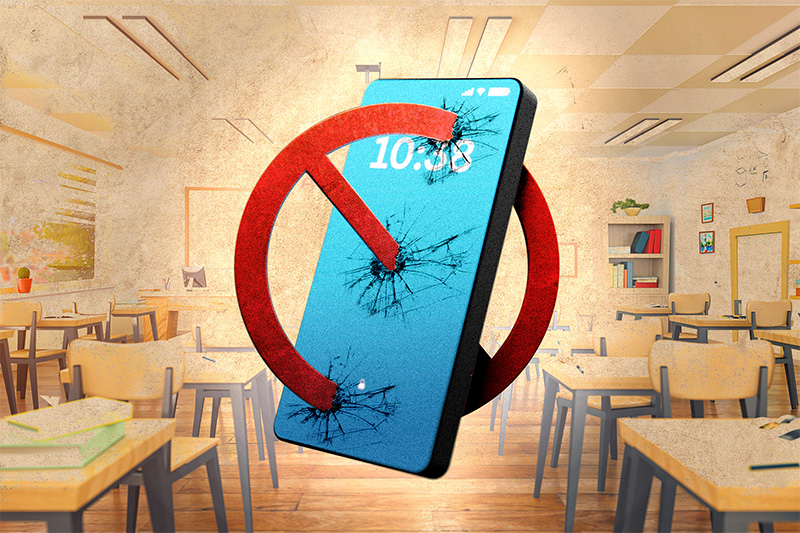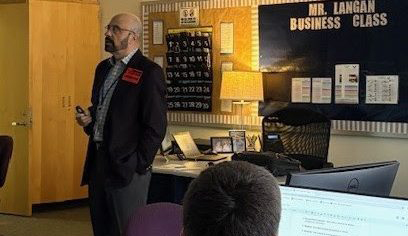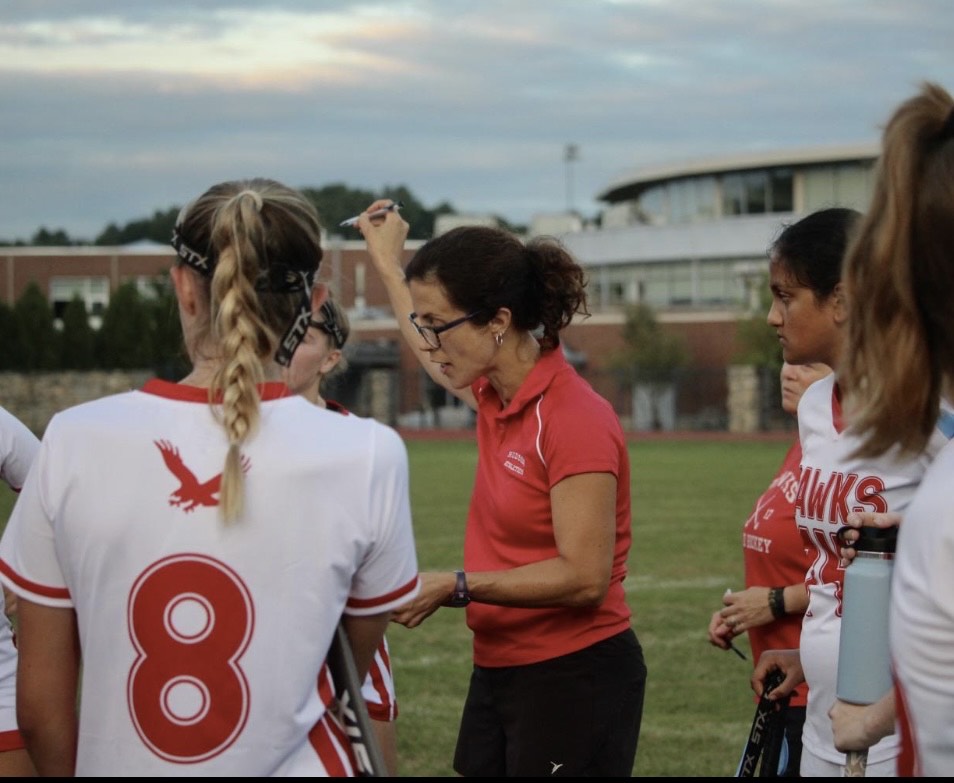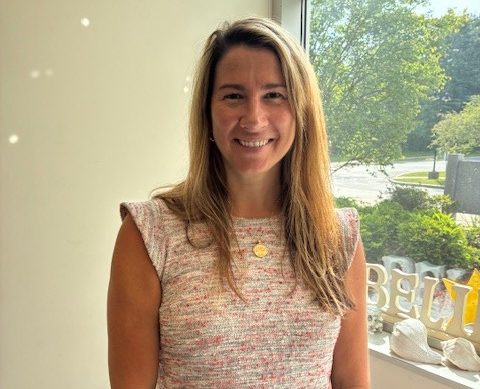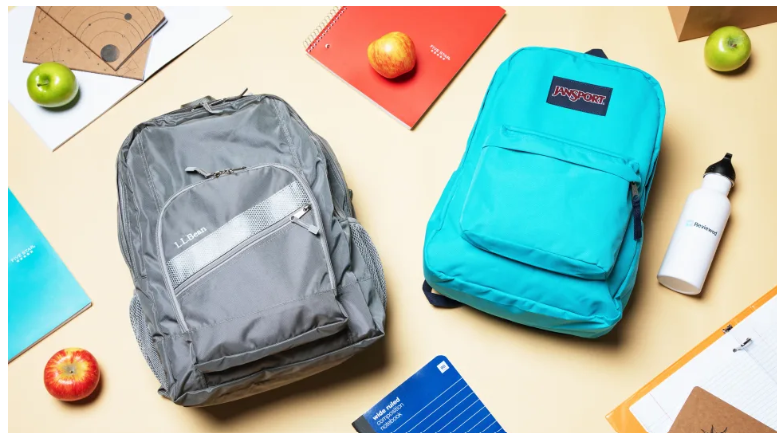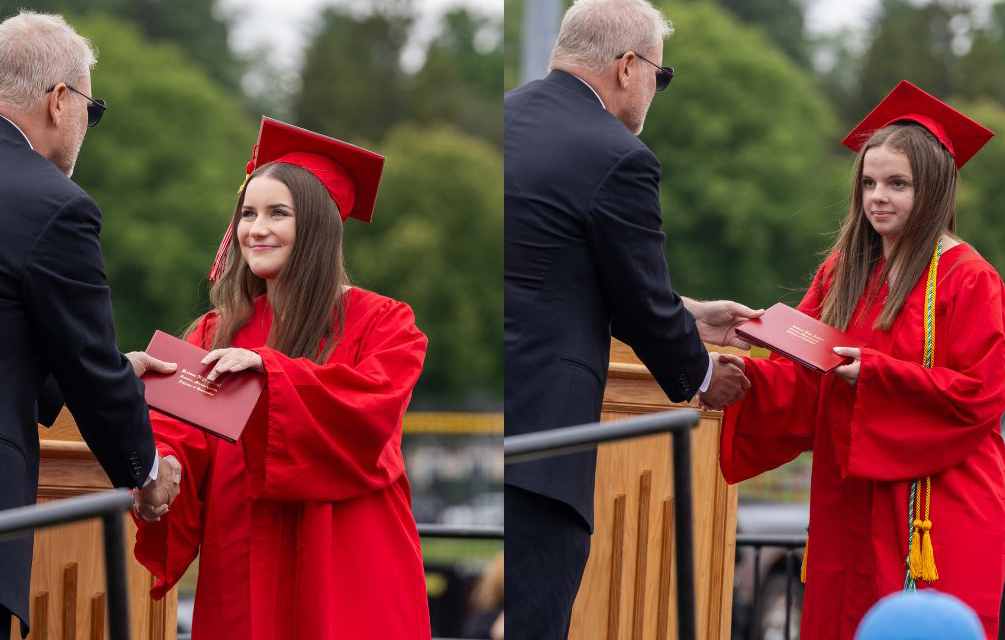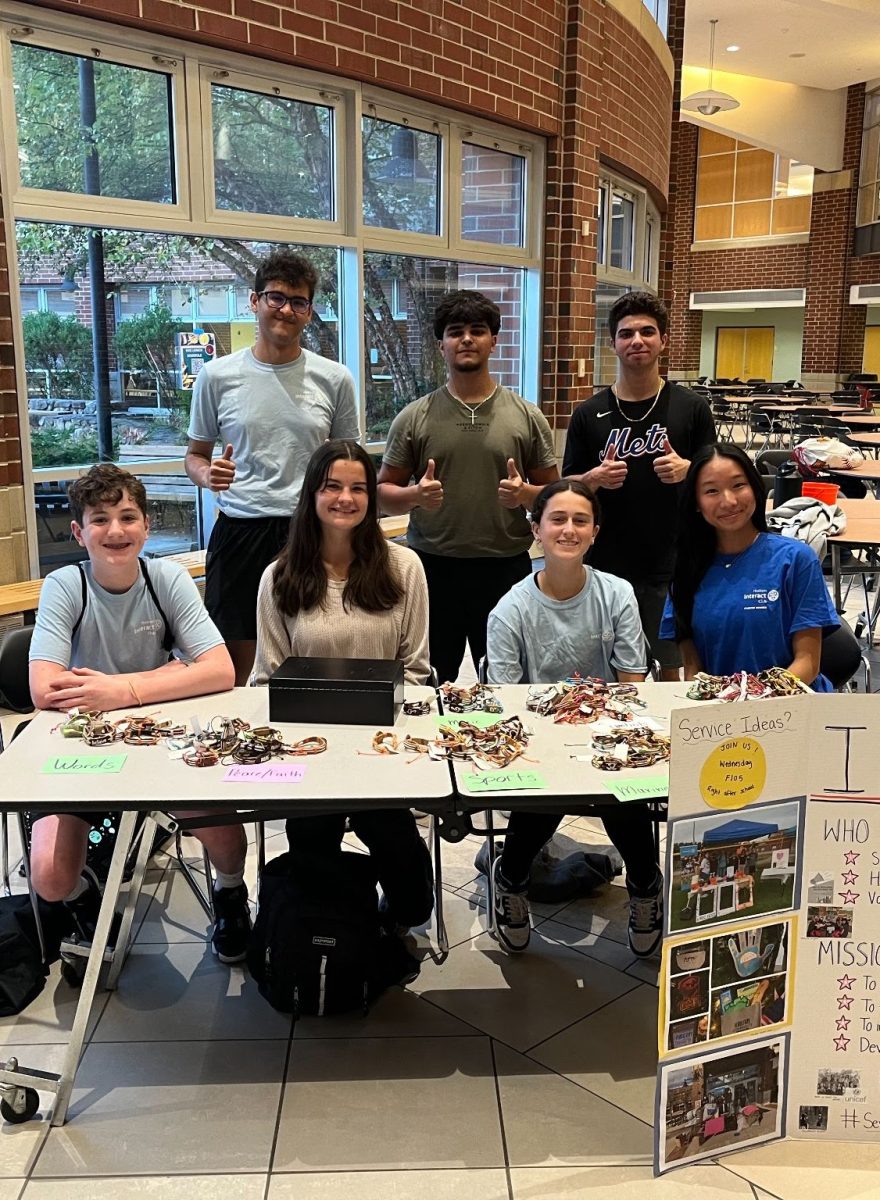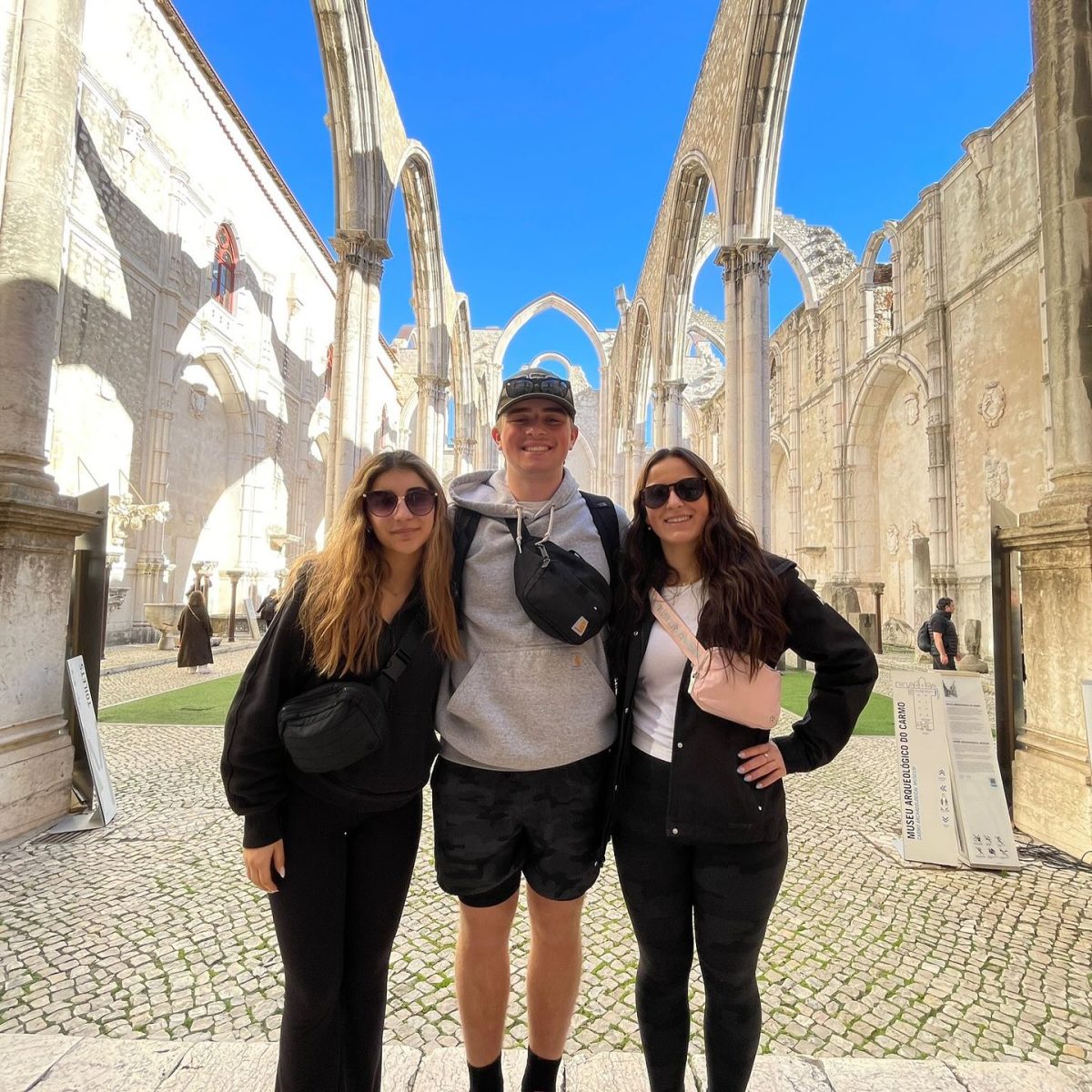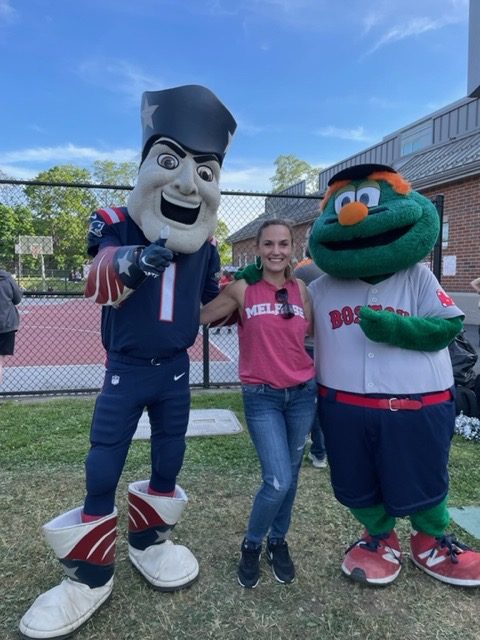by Dakota Antelman
In a year she dubbed a “great experiment,” social studies teacher Whitney Nielsen says she and her AP Seminar students have had to adapt to a curriculum unlike any other.
HHS added the course this fall just under three years after it was announced by the College Board in 2014 as part of the new Capstone program. One of the newest AP classes available to schools, Seminar teaches students college-level research and presentation skills.
As thirteen students signed up last spring, Nielsen herself had to get trained in teaching the course which, she noted, features fewer lectures, fewer traditional assessments, and more student independence than many other AP classes.
“It’s definitely more skills based and project based,” she said. “There’s not really any particular kind of content that you have to know other than the vocabulary that goes with discussing research skills, which is cool. I really like that it’s interdisciplinary as well. Students can follow their passion a little bit and look at the entirety of the problem instead of saying, ‘We’re not going to talk about that because that’s psychology and we’re not learning that here.’”
Throughout the course selection process last year, teachers advertised the class as one unlike traditional AP classes. Furthermore, it continues to earn praise as an introduction to college-level research and presenting.
“I’m starting to learn a lot more skills than I thought I would learn,” said sophomore Austin Temple. “Trying to tell your story in front of a bunch of people who have no idea what you’re talking about and trying to explain it thoroughly is something that I think will help me going into junior year and senior year and into college.”
Among the highlights of the first semester of Seminar, Nielsen and Temple agree, was an assignment where each student had to give a presentation of their personal research project to an audience of administrators and guidance counselors.
“Having all the principals there was cool,” Temple said. “We all kind of hated it at first, but it offered a lot of insight because Mr. Otlin was really keen on telling us what we needed to work on and both Mr. McAnespie and Mr. Reagan had things to talk about as well.”
The course has had its rough spots, however.
Though she had taught AP US History earlier in her career before taking on AP Seminar this year, the class was new territory for Nielsen. She has no textbook at her disposal, meaning that she has to work with teachers from other districts to share and find practice materials for her class. Additionally, Nielsen notes that the College Board has been changing lessons and materials throughout the year even though this is the third year that they have offered the course.
In a recent case, she received an email from the College Board telling her and other Seminar teachers to delete a set of documents and download a new set for an upcoming project just a week after they were told to download them. Before that, she says, she would get “periodic emails” with updated rubrics or other class materials.
“It’s interesting how much the actual course is changing on the fly,” she said. “We’re not the pilot year. It’s been piloted, and schools have been running it for a couple of years now.”
As she looks back on the successes and these struggles of the course in its first two terms at HHS, Nielsen has realized that the school may need to revise the way it advertises the class.
“It was really sold as so different that everyone can succeed, but the caveat would be that you have to be a strong reader and writer,” she said. “That doesn’t mean you have to get all A’s on everything — you might not get things done on time or [you] might not follow the same process as other people. Those people would be fine. But you have to be a strong reader and writer to keep up in the class, or it will be overwhelming.”
The students who are currently in Seminar and will be returning to HHS next year will have the opportunity to take AP Research in the fall. Research is the culmination of the Capstone curriculum, and it omits the traditional exam in favor of a 5,000-word research paper and an oral defense of that paper. But with just over a dozen students eligible to take Research, Nielsen is unsure of how many students will decide to continue.
Nevertheless, she and her students agree that they have already enjoyed a first-of-its-kind opportunity at Hudson High School.
“High school is very different from college,” she said. “This class may help people prepare to at least have a leg up on that [transition].”
